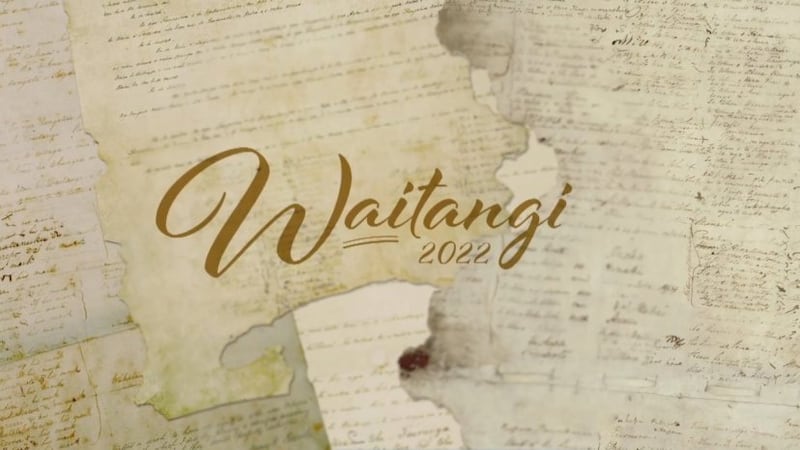The Māori Party’s call to part ways with the British monarch as Aotearoa's head of state (currently the Queen of New Zealand) won’t necessarily mean the end of the treaty partnership or even the Treaty of Waitangi, according to one treaty law expert.
Carwyn Jones, who has been a lecturer on Treaty of Waitangi law, believes the Treaty can still be relevant in a post-Crown system with the history of Aotearoa New Zealand largely leaving the treaty as a partnership between New Zealand and Māori.
“I don’t think there is any concern about the treaty becoming powerless if we were to move to a republic. Of course, Te Tiriti has that whakapapa with the British royal family and that’s significant in at least a symbolic way. But we already have a situation where we separate the person, Queen Elizabeth, from the Crown as we understand it.
“The obligations of Te Tiriti are really held by the government, by the state. Those obligations would continue.”
The notion that removing the formal connection between Aotearoa and the monarchy could spell the end of the Treaty of Waitangi, and therefore the partnership between tangata whenua and tangata tiriti has long been seen as a sticking point in the supporting calls to become a republic, or at least walk away from the monarchy.
Speaking to Te Ao Māori News this week, Ngāti Hine leader and former Māori Party candidate Te Waihoroi Shortland questioned the motivation behind the party's stance for a "divorce" from the Crown, 182 years after the signing of Te Tiriti o Waitangi, and the metaphoric "marriage" to the Crown.
Throwing stones
“Where has this idea come from? Who are the Māori supporting this idea? Is there support behind that idea? Or has it come from the leaders?
“This is Te Tai Tokerau's response. If you throw stones at the Treaty, the document our ancestors signed, we'll be quick to throw stones back, Māori Party,” Shortland asked.
Māori Party co-leader Rawiri Waititi, however, says it is not the party's intention to do away with the Treaty, or cast stones at it, but rather push for it to be the foundation document of a new system of government in Aotearoa.
"Kei te rongo ahau i te ia, me te ahi kei roto i tana puku. He mea pai tērā, kua tīmata te wānanga.
(I can feel what he said, and the fire within his belly. It's great, the discussion is beginning.)
"Engari e kore rawa mātou mō te whakawehe i te Tiriti o Waitangi. Waiho mā te Tiriti o Waitangi hei tūāpapa mō te aronga hōu e hiahiatia nei e mātou.
(But we will never walk away from the Treaty. The Treaty of Waitangi will instead be the foundation for the new direction we want for our future.)
Shortland for head of state?
In fact, he said someone like Shortland would be a perfect candidate to replace the current head of state, should the proposal succeed.
"He pai ake a Waihoroi hei Head of State mā tātou i te Kuini. Nā te mea mana motuhake, tino rangatiratanga, tuturu taketake nō Aotearoa nei, ngā kaipupuri i te Tiriti o Waitangi i te Tai Tokerau.
(Waihoroi would be much better as the Head of State than the Queen. Because mana motuhake, tino rangatiratanga in terms of right here in Aotearoa those things are strongly in the hands of the people from the north)
The Māori Party has likened the Treaty to the progeny of the partnership between Māori and the Crown. Waititi says that is what drives them to believe it can remain relevant and binding even after parting ways with the partners.
Jones says the whakapapa of New Zealand shows how that can be possible.
Transferred to the state
“The obligations and the duties from Te Tiriti o Waitangi, and the guarantees that were originally made by the British Crown, have now transferred to the New Zealand state, effectively. And so a further shift away from the monarchy is going to have any impact on those obligations.
“I think part of the concern that I know many Māori do have in thinking this through is because of course Te Tiriti was signed by the British Crown, and there is that direct whakapapa from Queen Victoria whose representatives signed Te Tiriti through to Queen Elizabeth. But I think we can also think about the whakapapa, or the evolution of the New Zealand state as well, and to see those obligations shifting already to the State, to the New Zealand government.”
Jones says a change in the government system in Aotearoa shouldn’t pose much of a threat to the legal application of the Treaty, or its principles, other than slight changes in the legal language used.
“We wouldn’t talk about the Crown as the one who holds the obligation so much. Maybe we would talk about the ‘state’.
“It is quite a distinctive way in which New Zealand does use that language of “the Crown”. That would need to change in the way that we talked about the application of those Treaty principles as well as the terms of Te Tiriti, but actually, the obligations, the duties, the rights that are contained there would remain.”

